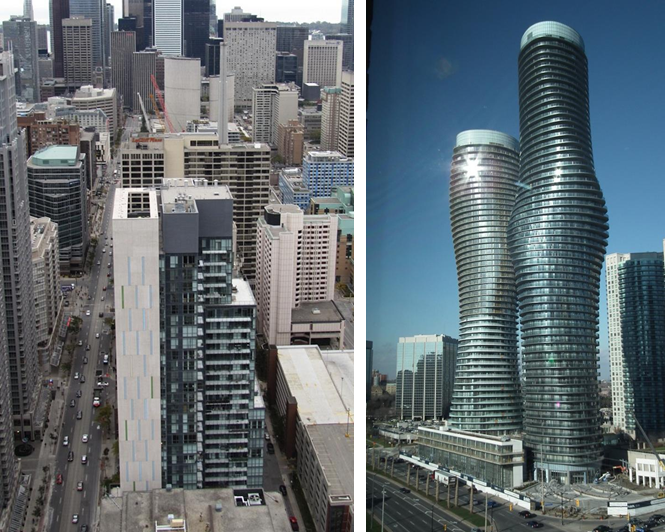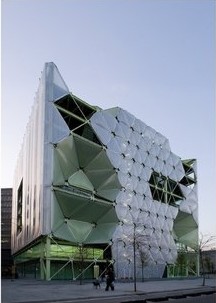By the mid-21st century 6 billion of us will be living in urban environments. What will that mean for cities and the buildings in which humans live?
If current trends reflect what lies in our mid-century future then we will continue to see urban intensification with cities ever reaching upward.
Here in the Greater Toronto Area, a city of well over 5 million, a place I call my home, the city increasingly is relying on residential and commercial construction focused on multiple-residence dwellings rather than single-purpose commercial buildings and family homes.

But buildings are not just going to get taller. They are also going to become energy independent, carbon neutral, and capable of adapting to seasonal and daily changes happening around them by using new materials and technology.
One such building that speaks to urban landscapes in our near future is the Media-ICT building in Barcelona, Spain. Barcelona is known for its innovative architecture but this building pushes the envelope of technical advancement.
When you look at it (see below) you get an inkling that there is something very different about this building and you are right. Its features include:
- A photovoltaic roof to power all the energy requirements of its tenants
- More than 500 embedded smart sensors each one having its own IP address so that software can measure temperature, humidity and pressure both on the inside and outside and automatically alter the building’s material characteristics
- An exterior membrance that consists of inflatable ETFE foil cushions kept continually pressurized to act as a sunscreen in summer when closed, and a solar energy generator in winter when open
- Nitrogen within the foil cushions that can alter opacity by turning into a fog in response to outside lighting conditions

The Media-ICT building’s exterior membrane is like our skin and responds to external changes in a similar way. We call this bio-mimicry because it’s almost as if the building has become a living thing.








